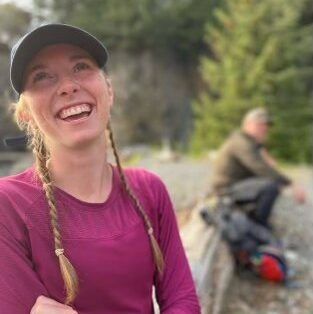Suggestions for sustainability for stressed students

Students’ schedules are constantly filled. With classes, homework, jobs, practices and social lives, adding environmental responsibilities to the list seems too burdensome. Finding sustainable solutions to every aspect in one’s life is admirable, but many times overwhelming. However, small sustainable steps can make a difference in the effects of each individual environmental impact.
Brayden Harris, a senior majoring in data science and environmental studies, reduces his environmental footprint throughout his daily life. Whether at his house or the grocery store, Harris makes small changes that positively impact the environment.
Harris requests paper instead of plastic bags when out shopping for groceries. He walks to campus even in the bitter cold and windy South Dakota winters by investing in a warm winter coat. Restaurants like Qdoba and Pancheros have less waste products than other food places, so he chooses these options when he can. Recycling, buying locally sourced meat from his parents and using quality items reduces his environmental impact.
“The right charging cords or rechargeable battery packs can last five plus years if you buy quality items,” Harris said. “I have two to three nice pens that you can purchase only the ink cartridge, so I don’t have to throw out the whole pen. This also challenges me to hold onto them so I don’t lose them because they cost enough that replacing them kind of sucks. But they have lasted nearly two and a half years now.”
Making sustainable daily life choices has become a habit for Harris that reduces his environmental impact without much effort, time or money.
“I am far from perfect,” Harris said. “But all of the little things you change add up in the long run.”
Janae Becher, a sophomore majoring in biochemistry and German, also works on reducing her environmental impact throughout her daily life. Becher recycles as much as she can and has gotten to the point where she throws out her trash every two months.
Becher has also worked to present others the opportunities to make changes in their lives through the projects she is involved in. These projects include creating a bag recycling drop off in the residence building Tuve, which she then brings to stores. She has also set up a composter in Tuve that residents use.
“It always has new plant matter in it, and we have gotten plants to grow from it too,” Becher said. “Currently, I have tomato plants in my room that have been sprouting since the beginning of the year when someone put a tomato in. One has finally flowered!”
Various websites offer advice on ways to go green on campus if one is not sure where to begin. The website Going Green at School lists a number of tips, including unplugging devices when not charging, using reusable water bottles and coffee mugs, eating less meat and buying second-hand.
While it may seem hard to remember all the little actions you can take toward living an eco-friendly lifestyle, Harris shares advice on how to begin.
“I try to change one habit a month. I don’t get one habit every month, but that just comes down to a busy schedule,” Harris said. “As long as you are trying, I would say as you are going through your daily life try and find one thing that you are doing that is wasteful.”
Becher’s advice is to learn from others who are actively working on sustainability and support in community events and programs, such as the Sioux Falls Recycling Center and various thrift and second-hand stores.
“The best thing you can do is educate yourself, and then, your habits will change for the better as reducing waste becomes part of who you are,” Becher said. “Once you feel comfortable with how you are doing, keep learning and growing your effort for sustainability, and it becomes natural to do.”
So next time you get a coffee at the Siverson Lounge, see if they will make it in your reusable coffee mug. Carry a reusable bag when you go to the store, try to walk or ride a bike as much as you can and compost banana peels, egg shells and other foods. While these small actions individually won’t make a difference, if we all work on making sustainable changes in our lives, we can collectively become a greener community.



